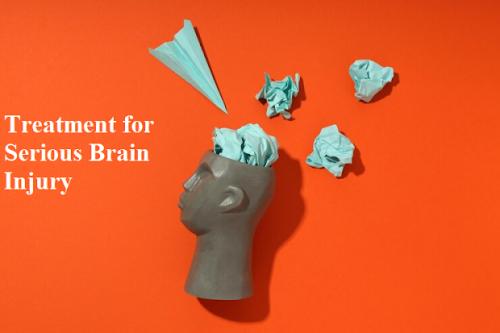Healing Together: How Brain Injury Support Groups are Helping Veterans and Their Families!

Healing Together: How
Brain Injury Support Groups are Helping Veterans and Their Families!
Veterans Day is quickly approaching, so it's vital to remember our military personnel—not only for the service they have offered, but also for the medical treatment they may still require, particularly if they had injuries while on active duty abroad. Traumatic brain injury (TBI) is one such injury that results from a strong blow to the head and is frequently brought on by car accidents, slips and falls, explosions, or other military-related incidents. Between 2000 and 2021, more than 430,000 U.S. service personnel received a TBI diagnosis, with 15% of those being deemed "severe." Here you will learn about how Brain Injury Support Groups helps veterans?
TBI can have an impact on a veteran's daily life, employment opportunities, and social interactions for months or years following the injury. Veterans' treatment can become more difficult when co-occurring disorders like posttraumatic stress disorder (PTSD) augment these difficulties. Veterans who have sustained one or more TBIs may also be more susceptible to other illnesses, such as early-onset dementia, as well as an earlier mortality.
What Is Traumatic Brain Injury?
A TBI won't always result from a blow to the head or jolt. TBI, which includes temporary loss of consciousness, frequently results from explosion injuries or exposures in the military community. An explosion caused by an IED, mortar, bomb, or rocket-propelled grenade can cause shock.
TBIs come in three different grades: mild, moderate, and severe. Mild TBI, often known as mTBI, is the most frequent among military personnel. Concussions and this form of TBI are frequently used interchangeably. Despite being minor, the consequences might linger for a long time if left untreated.
The Brain Injury Support Group Northern Virginia is an organization that provides support and resources to individuals who have experienced a traumatic brain injury (TBI) and their families.
Organize a Support Group for Veterans' Long-Term Systems Of Care
Veterans with TBI will require more care and assistance from carers as they become older and deal with ongoing medical conditions. In light of their ageing and declining capacity to care for veterans, carers' needs must also be taken into account.
● Support long-term planning and expectations clarification for veterans and carers. Veterans and carers need to know what to anticipate in the long run and how much control they have to change their circumstances, but gaining these answers is challenging due to the unknown effects of TBI in the long term. Planning for the long term and setting goals for treating TBI and complicated polytraumas require open communication and regular case management.
● Boost aid to carers. Careers of qualified veterans are supported through the Brain Injury Support Group Northern Virginia provide a Programme of Comprehensive Assistance for Family Carers. This programme may require more funding as carers get older and are less able to care for veterans
●
Increasing long-term care access.
Expanding access to care by removing financial obstacles would be crucial given
the anticipated long-term care requirements of veterans with TBI.
Open up more access to multidisciplinary care
Veterans should broaden its network of polytrauma institutions and doctors and look into additional methods to promote access to this sort of therapy, such as through telemedicine, given the veterans' growing need for care as they age. This method can potentially be used as a prototype for comprehensive, interdisciplinary treatment of TBI and related diseases. To this aim, VA should compile and share information on best practices, studies on efficient therapies, and statistics on the long-term results of veterans.
Encourage health-improving actions
Veterans who participated in interviews indicated worry about the long-term effects of TBI and ambiguity about their likelihood of acquiring neurological deficits at an early age. The general health and well-being of veterans can be significantly improved, supporting their therapy, by engaging in regular exercise, eating a good diet, abstaining from alcohol, and engaging in other wellness practises. Veteran-serving organisations should increase the number of veterans and carers who participate in their health and fitness programmes while also offering them networking opportunities and coping mechanisms.
Emotional Support
The group provides a safe and supportive environment for individuals to discuss their experiences, feelings, and concerns related to their brain injury. Members can connect with others who have similar experiences and share coping strategies.
Information and Resources
The organization can provide information and resources on TBI, including treatment options, rehabilitation services, and support services in the local area.
Take Away:
Traumatic brain injury is a serious and often
long-lasting injury that affects not only the individual but also their family
members. Brain Injury Support Groups
such as the Brain Injury Support Group Northern Virginia and Brain Injury
Support for Veterans are helping to alleviate some of the burden faced by
veterans and their families by providing emotional support, information and
resources, education and advocacy, social activities, and peer mentoring. These
organizations play a critical role in helping veterans and their families heal
together and rebuild their lives after a traumatic brain injury.
Post Your Ad Here
Comments